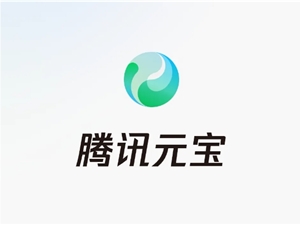Artificial intelligence is once again creating waves in the field of drug development! Chai Discovery recently launched a new AI model called Chai-2, which has attracted widespread attention with its groundbreaking technology in molecular design. Chai-2 achieves zero-shot antibody design with a success rate of 16%-20%, more than a hundred times higher than traditional methods, and shortens the drug development cycle from months or even years to just two weeks.

Zero-shot antibody design, breaking traditional bottlenecks
Chai-2 is a multimodal generative AI model developed by Chai Discovery, focusing on the prediction and design of molecular structures. Compared to traditional antibody discovery methods, such as animal immunization or high-throughput screening, Chai-2 does not rely on existing antibody templates or large-scale experimental screening. Instead, it can design the complementarity determining region (CDR) of an antibody from scratch, based only on the target antigen and epitope information. In tests on 52 new antigen targets, Chai-2 achieved a success rate of 16%-20% by testing only 20 designs, and 50% of the targets obtained at least one effective binder, far exceeding the 0.1% success rate of traditional AI methods.

Image source note: The image was generated by AI, and the image licensing service provider is Midjourney.
Complete design to validation within two weeks
Another highlight of Chai-2 is its efficiency. Traditional antibody drug development usually takes several months or even years, but Chai-2 compresses the entire cycle of molecule generation, synthesis, and characterization into just two weeks by combining full-atom structure prediction with generative modeling. In one case, Chai-2 solved an antibody design problem that traditionally cost over $5 million in just a few hours, demonstrating its significant advantages in efficiency and cost.
Multimodal applications, expanding the boundaries of drug design
Chai-2 is not limited to antibody design; it also supports the design of single-chain antibodies (scFv), nanobodies (VHH), and various other forms of mini-proteins. In the design of mini-protein conjugates, Chai-2 achieved a laboratory validation hit rate of up to 68%, with binding affinity reaching the picomolar level. Moreover, the antibodies generated by Chai-2 have excellent pharmaceutical properties, such as high specificity, nanomolar-level affinity, and good developability, laying the foundation for their rapid translation into therapeutic applications.
Industry impact and future prospects
The release of Chai-2 marks a shift in drug development from empirical exploration to deterministic molecular engineering. Industry experts believe that Chai-2's high success rate and broad applicability offer the possibility of tackling traditionally "undruggable" targets, especially in complex therapeutic forms such as antibody-drug conjugates and bispecific antibodies. Chai Discovery plans to open access to Chai-2 through its "responsible deployment policy," prioritizing projects that benefit human health and society.
AIbase believes that Chai-2's breakthrough is not only a milestone in AI's application in drug development but also signals the transformation of biology from science to engineering. In the future, as Chai-2 continues to be optimized in areas such as manufacturing feasibility and pharmacokinetics, AI-driven drug development may achieve the goal of "one design, one success," bringing revolutionary advances to fields such as cancer, autoimmune diseases, and infectious diseases.










